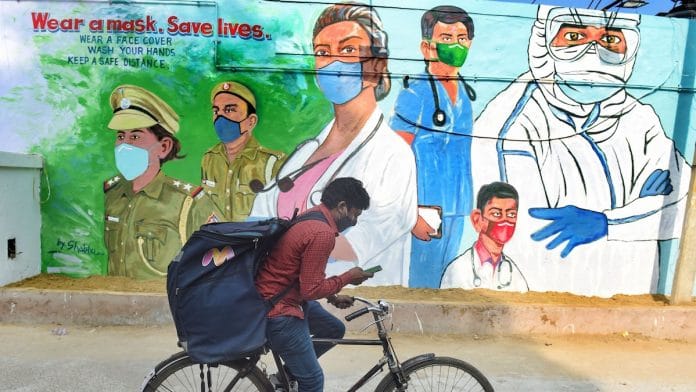The World Health Organization during its 73rd World Health Assembly, urged global leaders to prepare for the next pandemic. The WHO highlighted that “the COVID-19 pandemic is a sobering reminder that health is the foundation of social, economic and political stability”. But to prepare for the next unprecedented global event, it is important to identify gaps in the existing public health infrastructure and invest in the research needed to prepare and respond to infectious diseases.
India is especially vulnerable to infectious disease outbreaks due to its unique geographical position and its large population. Despite this, India does not have a formal strategy and a full-time organisation to prepare for naturally occurring infections. India, instead, follows a more reactive approach and convenes emergency committees and ad hoc response groups once a disaster has occurred. This reactive approach to disease outbreaks worsened India’s strategy to tackle the coronavirus pandemic, when despite the longest lockdown, the country continued to observe a surge in infections for many months. This was because, India, instead of using the time between the two outbreaks to develop plans to prepare for the next pandemic, convened emergency committees to respond to the pandemic, which led to poor coordination and inadequate response.
Problems in India’s response to Covid
India’s response to the coronavirus pandemic has exposed a few gaps in its public health capacity. Lack of adequate funding to support public health research, shortage of trained medical workers and epidemiologists, and non-existence of a nationwide policy on biological disasters are some of them.
First, inadequate budgetary allocations to research bodies like the Indian Council of Medical Research (ICMR) has restricted the scope of public health research in India. In addition to impacting basic research, the effect of this inadequate funding was observed during the initial phases of the coronavirus pandemic, when the country did not have enough well-equipped diagnostic labs, which led to India’s abysmally low testing numbers.
Second, despite having one of the highest numbers of medical colleges as a nation, India has one of the lowest doctors to patient ratios. This is because doctors are often poorly paid in India, which forces them to either move abroad for higher education or change career paths. Moreover, India does not have enough specialised training courses in areas of public health, epidemiology, public economics, and health policy. This was again revealed during the coronavirus pandemic, when India was racing to hire 227 epidemiologists in the middle of the pandemic.
Third, India does not have a legislation that drives its response to biological emergencies. India’s response to the coronavirus pandemic is guided by the Epidemic Diseases Act of 1897, along with provisions of the Disaster Management Act of 2005. The National Centre for Disease Control, set up under the Ministry of Health and Family Welfare, introduced a bill in 2017 to deal with epidemics, biological disasters, and events related to bioterrorism. The bill has, however, lapsed. Absence of a law or a full-time organisation to prepare and respond to pandemics led to India’s reactive approach toward containing the pandemic.
Also read: Investing in public health most important lesson of Covid pandemic, says WHO chief scientist
Strengthening public health infrastructure
Repeated outbreaks of infectious diseases should be a warning for India to invest in healthcare, fund medical research, and train workers who can be deployed during biological emergencies.
First, to better India’s public health research, it is important for the government to identify local donors to increase funding to research bodies such as the ICMR. This can strengthen lab networks that can lead to timely diagnosis of infectious diseases. In addition to funding research bodies, these private donors can also mobilise resources needed to ramp up public health infrastructure.
Second, the government should introduce specialised public health courses, create more opportunities and incentives to retain medical professionals in India. In addition to introducing such subjects in the medical curriculum, it is important to conduct periodic training of healthcare workers. Further, it is mandatory to identify research organisations—both public and private—that can provide scientific solutions such as developing diagnostic kits, vaccines, drugs, and other countermeasures, recognise private players that can scale up manufacturing of medical countermeasures during an outbreak. India should also consider conducting inexpensive tabletop exercises to develop and test standard operating procedures that can be implemented during real-time pandemic situations.
Since the coronavirus pandemic is not the last unprecedented biological emergency, it should be a wakeup call for policymakers in India to invest in public health, train medical professionals, divert resources toward research needed to strengthen public health, and create a national-level strategy, with continuous dialogue with state governments, to prepare for the next pandemic.
Shruti Sharma is a research analyst with the Technology and International Affairs program at the Carnegie Endowment for International Peace. Views are personal.
This article is part of a series examining The Geopolitics of Technology in partnership with Carnegie India, leading up to its virtually held Global Technology Summit 2020 from 14-18 December 2020. More details about the summit are available here. ThePrint is a digital partner.
Read all the articles in the series here.






